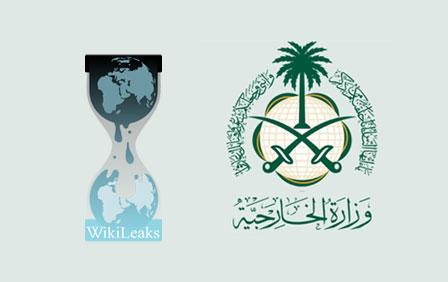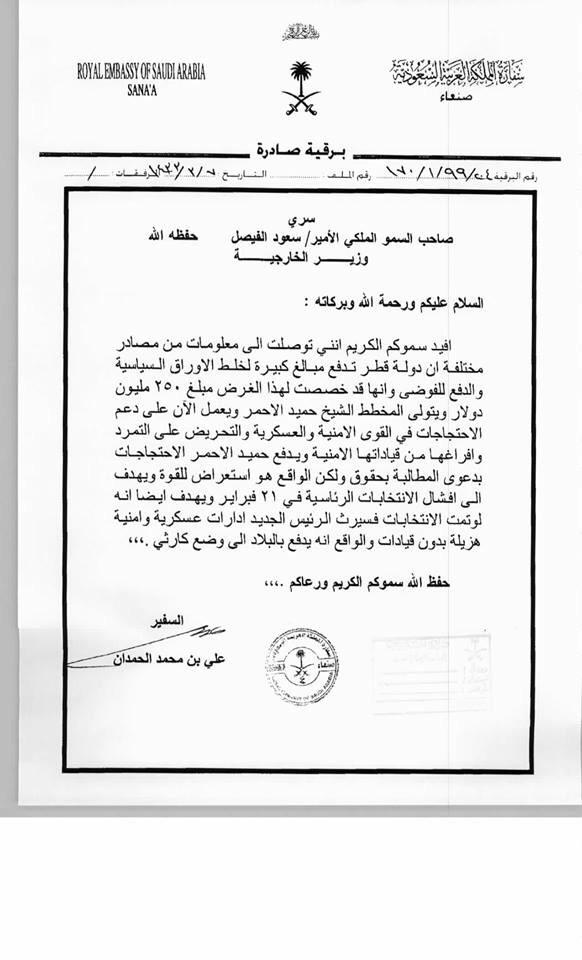Following fast on the heels of the Sony leaks, a reinvigorated WikiLeaks has announced that it will be releasing over 5,00,000 top sectret documents from Saudi Arabia, including communication to and from the Saudi Foreign Ministry as well as reports from the kingdom’s intelligence agency and Ministry of Interior.
In the press release WikiLeaks state that the cache reveals “how it (Saudi Arabia) has managed its alliances and consolidated its position as a regional Middle East superpower, including through bribing and co-opting key individuals and institutions.” According to Julian Assange, the leaked documents “lift the lid on an increasingly erratic and secretive dictatorship that has not only celebrated its 100th beheading this year, but which has also become a menace to its neighbors and itself.”
RELEASE: The Saudi Cables https://t.co/BOv2DKnKRF pic.twitter.com/XO2hhOJ1Mp
— WikiLeaks (@wikileaks) June 19, 2015
The whistleblowing website made good on its promise by releasing the first batch of around 60,000 documents on Friday, most of them in Arabic. Reportedly stolen from the Saudi Foreign Ministry by a hacktivist group called the Yemeni Cyber Army, the documents reveal the Saudi government’s acts to co-opt and control media worldwide with bribes and confrontations.
Although there is no way to verify the authenticity of these documents, WikiLeaks has an unenviable track record of hosting large-scale leaks of highly classified government material, and these appear to be genuine by all counts. Some of the documents are marked with the recognizable green letterhead marked “Kingdom of Saudi Arabia” or “Ministry of Foreign Affairs” while others are marked “urgent” or “classified.” At least one appeared to be from the Saudi Embassy in Washington. The Saudi Foreign Ministry has also admitted to a breach of its computer networks last month, attributed to the same Yemeni Cyber Army. The group subsequently released a number of valuable “sample” document sets from the breach on file-sharing sites, which then fell under censorship attacks. This trove appears to be from that breach.
Read the full press release below:
ISTANBUL (AP) — WikiLeaks is in the process of publishing more than 500,000 Saudi diplomatic documents to the Internet, the transparency website said Friday, a move that echoes its famous release of U.S. State Department cables in 2010.
WikiLeaks said in a statement that it has already posted roughly 60,000 files. Most of them appear to be in Arabic.
There was no immediate way to verify the authenticity of the documents, although WikiLeaks has a long track record of hosting large-scale leaks of government material. Many of the documents carried green letterhead marked “Kingdom of Saudi Arabia” or “Ministry of Foreign Affairs.” Some were marked “urgent” or “classified.” At least one appeared to be from the Saudi Embassy in Washington.
If genuine, the documents would offer a rare glimpse into the inner workings of the notoriously opaque kingdom. They might also shed light on Riyadh’s longstanding regional rivalry with Iran, its support for Syrian rebels and Egypt’s military-backed government, and its opposition to an emerging international agreement on Tehran’s nuclear program.
One of the documents, dated to 2012, appears to highlight Saudi Arabia’s well-known skepticism about the Iranian nuclear talks. A message from the Saudi Arabian Embassy in Tehran to the Foreign Ministry in Riyadh describes “flirting American messages” being carried to Iran via an unnamed Turkish mediator.
Another 2012 missive, this time sent from the Saudi Embassy in Abu Dhabi, said the United Arab Emirates was putting “heavy pressure” on the Egyptian government not to try former president Hosni Mubarak, who had been overthrown in a popular uprising the year before.
Some of the concerns appear specific to Saudi Arabia.
In an Aug. 14, 2008 message marked “classified and very urgent,” the Foreign Ministry wrote to the Saudi Embassy in Washington to warn that dozens of students from Saudi Arabia and other Gulf countries had visited the Israeli Embassy in the U.S. capital as part of an international leadership program.
“They listened to diplomats’ briefings from the embassy employees, they asked questions and then they took pictures,” the message said, asking the embassy for a speedy update on the situation.
Another eye-catching item was a document addressed to the interior and justice ministers notifying them that a son of Osama bin Laden had obtained a certificate from the American Embassy in Riyadh “showing (the) death of his father.”
Many more of the dozens of documents examined by The Associated Press appeared to be the product of mundane administrative work, such as emails about setting up a website or operating an office fax machine.
The AP was able to partially verify a handful of documents’ authenticity by calling the telephone numbers included in many of them. WikiLeaks spokesman Kristinn Hrafnsson told AP he was confident that the material was genuine.
It is not clear how WikiLeaks got the documents, although in its statement the website referred to a recent electronic attack on the Saudi Foreign Ministry by a group calling itself the Yemen Cyber Army. Hrafnsson declined to elaborate on the statement or say whether the hackers subsequently passed documents on to WikiLeaks.
“As a matter of policy we’re not going to discuss the source of the material,” he said.
The Saudi Embassy in Washington did not immediately return repeated messages seeking comment.
In its statement, WikiLeaks said the release coincided with the three-year anniversary of its founder, Julian Assange, seeking asylum in the Ecuadorian Embassy in London.
Assange took refuge in the embassy to avoid extradition to Sweden, where he is wanted for questioning about alleged sex crimes. Assange has denied any wrongdoing.




